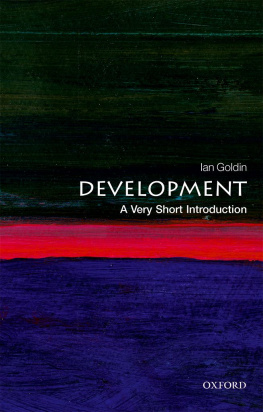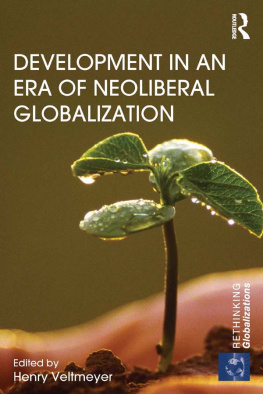Islam, Development, and Urban Women's Reproductive Practices
Drawing on fieldwork conducted in Rabat, Morocco, this ethnography analyzes the relationship between neoliberal development policies, urban women's reproductive practices, and popular understandings of Islam. In the 1990s, Morocco shifted its attention from economic to human development, as economic reforms in the preceding decades ultimately did not address social issues such as access to healthcare and education and poverty. Development programs like the National Initiative for Human Development seek to create modern citizens who are responsible, self-sustaining, and will make choices that better their well-being. Hughes Rinker considers the implications that the reorientation from primarily economic to social development has on reproductive healthcare. Drawing on observations in health clinics; interviews with patients, medical staff, and at government and development agencies; and a document analysis, she demonstrates how women appropriate the medical practices and spaces of intervention aimed at creating modern citizens to form new religious identities, novel ideas of motherhood, and interpretations of neoliberal citizenship based on Islamic beliefs. Women's interpretations of Islam are not incompatible with the state's agenda for modernization, but rather serve as rationale for women to accept modern reproductive practices, such as contraception, ultrasounds, and pregnancy tests. However, even though female patients appropriate medical practices, they reinscribe development tropes that suggest they participate in modernization through their reproductive bodies and mothering instead of their productive labor. Hughes Rinker complicates neoliberalism as she shows it is unproductive to have a set conceptualization of neoliberal citizens, and more productive to examine the practices and discourses that create such citizens.
Cortney Hughes Rinker earned her Ph.D. in Sociocultural Anthropology from the University of California Irvine. She is Assistant Professor in the Department of Sociology and Anthropology at George Mason University.
Routledge Studies in Anthropology
Student Mobility and Narrative in Europe
The New Strangers
Elizabeth Murphy-Lejeune
The Question of the Gift
Essays across Disciplines
Edited by Mark Osteen
Decolonising Indigenous Rights
Edited by Adolfo de Oliveira
Traveling Spirits
Migrants, Markets and Mobilities
Edited by Gertrud Hwelmeier and Kristine Krause
Anthropologists, Indigenous Scholars and the Research Endeavour
Seeking Bridges Towards Mutual Respect
Edited by Joy Hendry and Laara Fitznor
Confronting Capital
Critique and Engagement in Anthropology
Edited by Pauline Gardiner Barber, Belinda Leach and Winnie Lem
Adolescent Identity
Evolutionary, Cultural and Developmental Perspectives
Edited by Bonnie L. Hewlett
The Social Life of Climate Change Models
Anticipating Nature
Edited by Kirsten Hastrup and Martin Skrydstrup
Islam, Development, and Urban Women's Reproductive Practices
Cortney Hughes Rinker
Islam, Development, and Urban Women's Reproductive Practices
Cortney HughesRinker
First published 2013
by Routledge
711 Third Avenue, New York, NY 10017
Simultaneously published in the UK
by Routledge
2 Park Square, Milton Park, Abingdon, Oxon OX14 4RN
Routledge is an imprint of the Taylor & Francis Group, an informa business
2013 Taylor & Francis
The right of Cortney Hughes Rinker to be identified as author of this work has been asserted in accordance with sections 77 and 78 of the Copyright, Designs and Patents Act 1988.
All rights reserved. No part of this book may be reprinted or reproduced or utilised in any form or by any electronic, mechanical, or other means, now known or hereafter invented, including photocopying and recording, or in any information storage or retrieval system, without permission in writing from the publishers.
Trademark Notice: Product or corporate names may be trademarks or registered trademarks, and are used only for identification and explanation without intent to infringe.
Library of Congress Cataloging-in-Publication Data
Hughes Rinker, Cortney.
Islam, development, and urban women's reproductive practices / by
Cortney Hughes Rinker.
pages cm. (Routledge studies in anthropology; 9)
Includes bibliographical references and index.
1. Human reproductionGovernment policyMorocco. 2. Human
reproductionReligious aspectsIslam. 3. Urban women
Morocco. 4. WomenHealth and hygieneMorocco. I. Title.
QP251.H796 2013
612.60964dc23
2012042914
ISBN13: 978-0-415-81887-2 (hbk)
ISBN13: 978-0-203-38775-7 (ebk)
Typeset in Sabon
by IBT Global.
To all the women in Morocco who opened up my eyes
and
To our little one who has taught me what it means to be a
mother
The one who wants honey must tolerate bee stings.
l-li ba l-sl y-br l qris n-nhl.
Moroccan Proverb
Contents
Figures and Tables
FIGURES
TABLES
Note on Translation
When appropriate, I have provided English translations of Moroccan Arabic (darija), Modern Standard Arabic (fua), and French words and sentences. I have translated and transliterated terms and phrases in the Moroccan dialect of Arabic to the best of my ability, consulting texts such as A Basic Course in Moroccan Arabic (2006) by Richard S. Harrell, Mohammed Abu-Talib, and William S. Carroll and the Peace Corps instruction book on Moroccan Arabic. For any Modern Standard Arabic, I used the International Journal of Middle East Studies (IJMES) transliteration system for proper spelling and formatting. My teachers at Al Akhawayn University in Morocco told me that one of the main differences between Moroccan Arabic and Modern Standard Arabic is the absence of long vowels in the Moroccan dialect, although verb conjugations, prepositions, and vocabularies differ as well. Moroccan Arabic has words from French and Spanish as well as from Amazigh dialects. In addition, all French translations are my own. I take complete and full responsibility for any misinterpretation or mistranslation.
Acknowledgments
This ethnography was only made possible through the love, help, and support of many different individuals. I am forever indebted to more people than I can name in these few pages, and I apologize in advance to anyone whose name I was not able to include here.
I am grateful to my advisor in graduate school, Susan Greenhalgh, for her guidance. I am thankful for the hours she spent reading every word of my papers, proposals, and chapters and for her patience as I tried to turn my data and ideas into something coherent and concise. Her mentorship is more than I could have ever asked for in a dissertation advisor. Victoria Bernal, who as one of my first-year advisors at the University of California Irvine encouraged me to explore feminist theory and research from the very beginning. Mei Zhan introduced me to the world of Science and Technology Studies and to medical anthropology in the anthropology department's first-year graduate seminar and her course Other Knowledges. Lara Deeb offered tremendous insight as to how I can position myself as a Middle East anthropologist. I must sincerely thank them for their critical reading of drafts and for their comments that pushed my thinking and writing. Kaushik Sunder Rajan provided helpful commentary on my dissertation prospectus that I continuously drew upon while conducing fieldwork for this project. Tom Boellstorff, Mike Burton, Teresa Caldeira, Karen Leonard, Bill Maurer, and Jennifer Terry offered a space for me to develop my intellectual voice in their seminars. Conversations with Angela Garcia, Kavita Philip, and Jeanne Scheper at various points in time helped shaped parts of my analysis. Michael Montoya encouraged me to stay in the place of uncertainty longer while thinking and writing. I thank Kristin Peterson for taking me on as a research assistant in 2009; the opportunity made me realize the importance of bringing global health and anthropology together to address disparities from the ground up.





